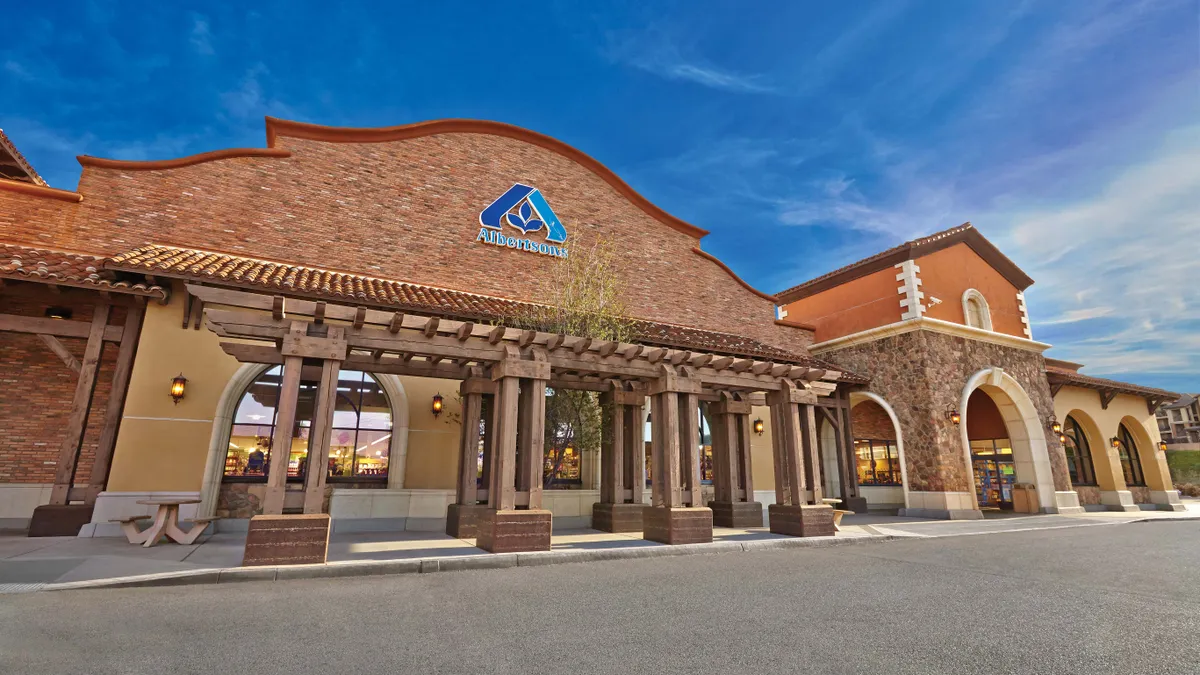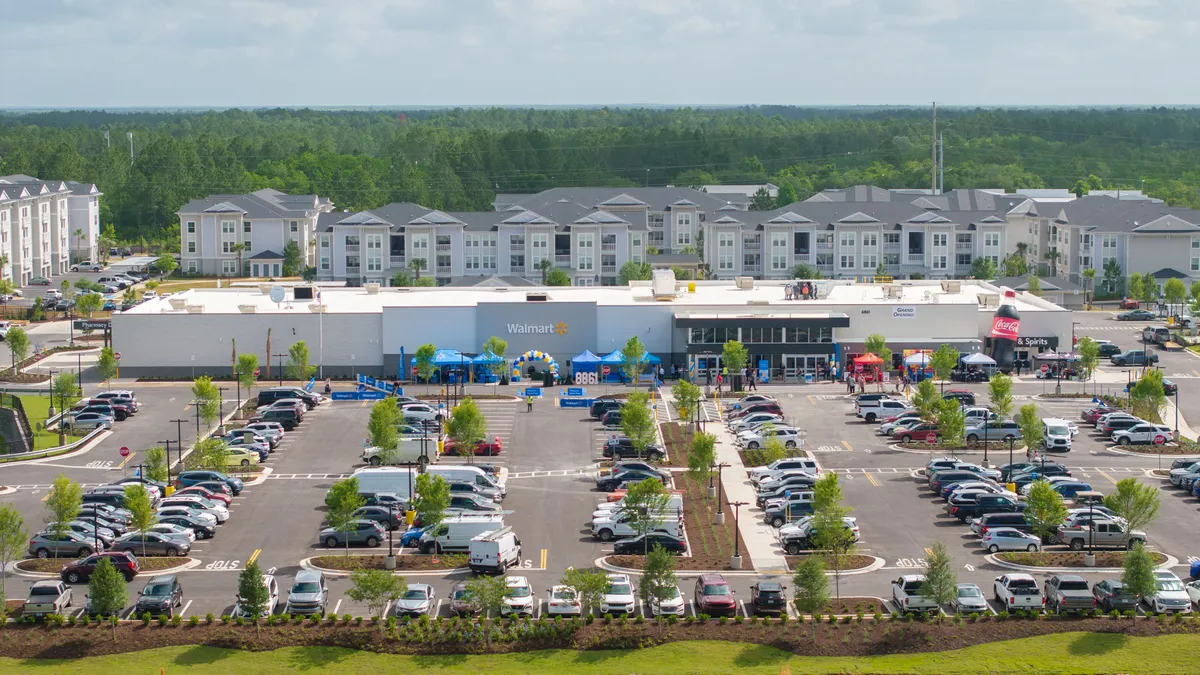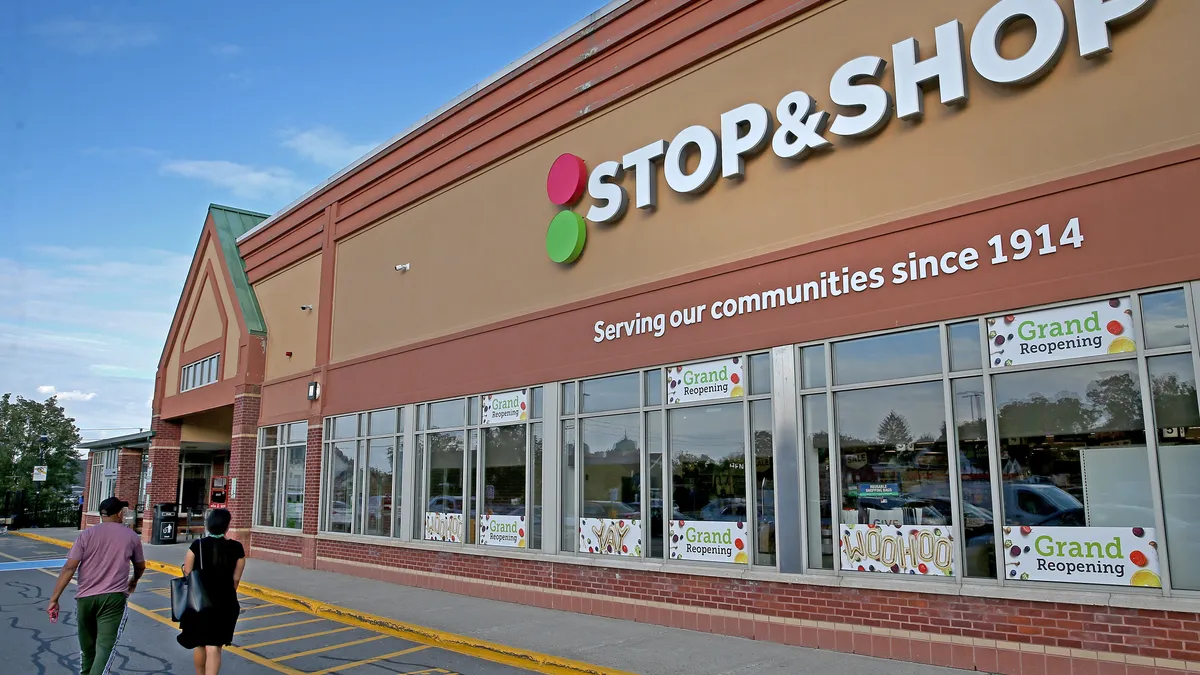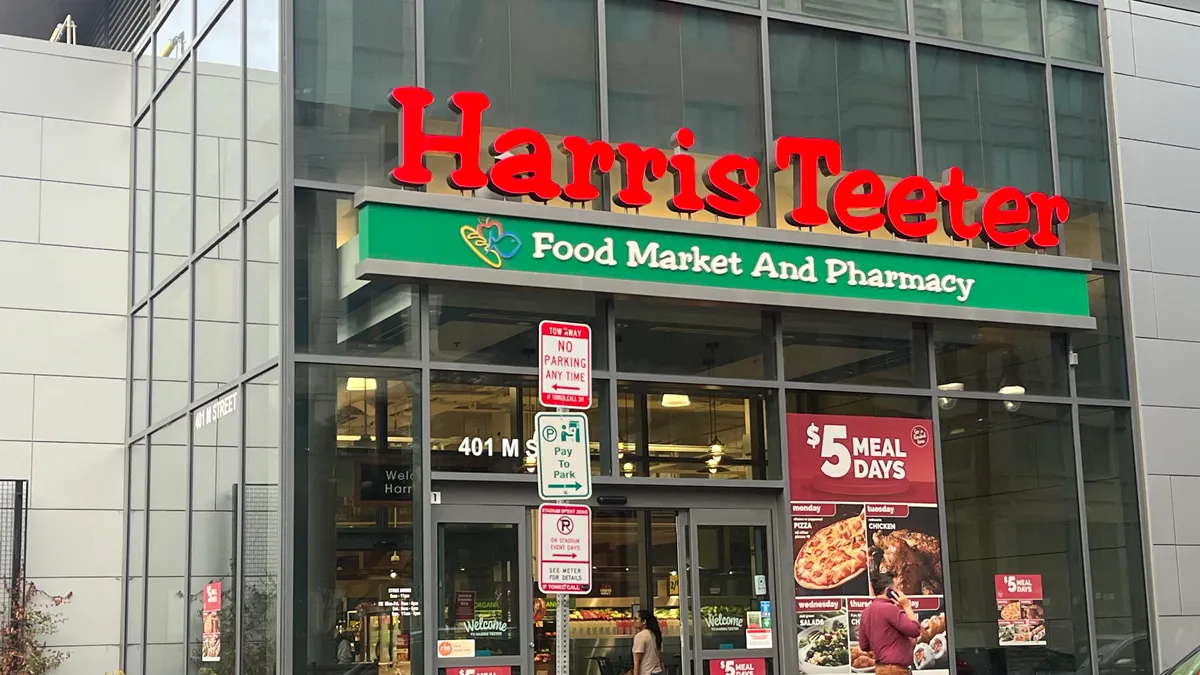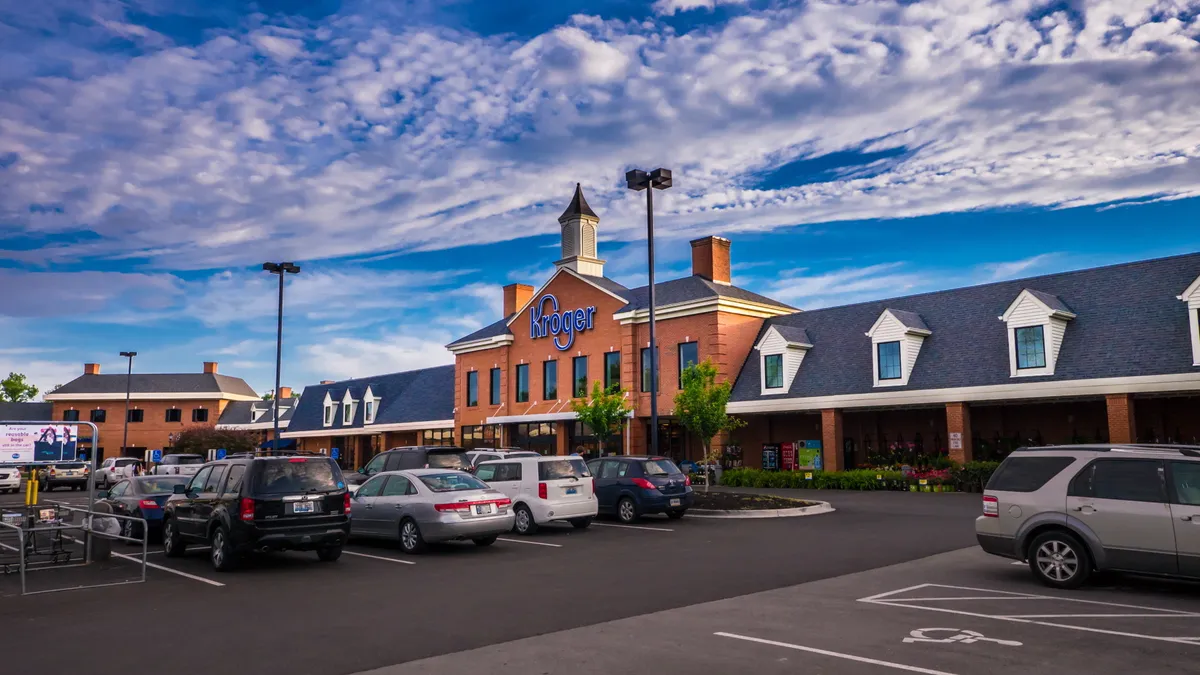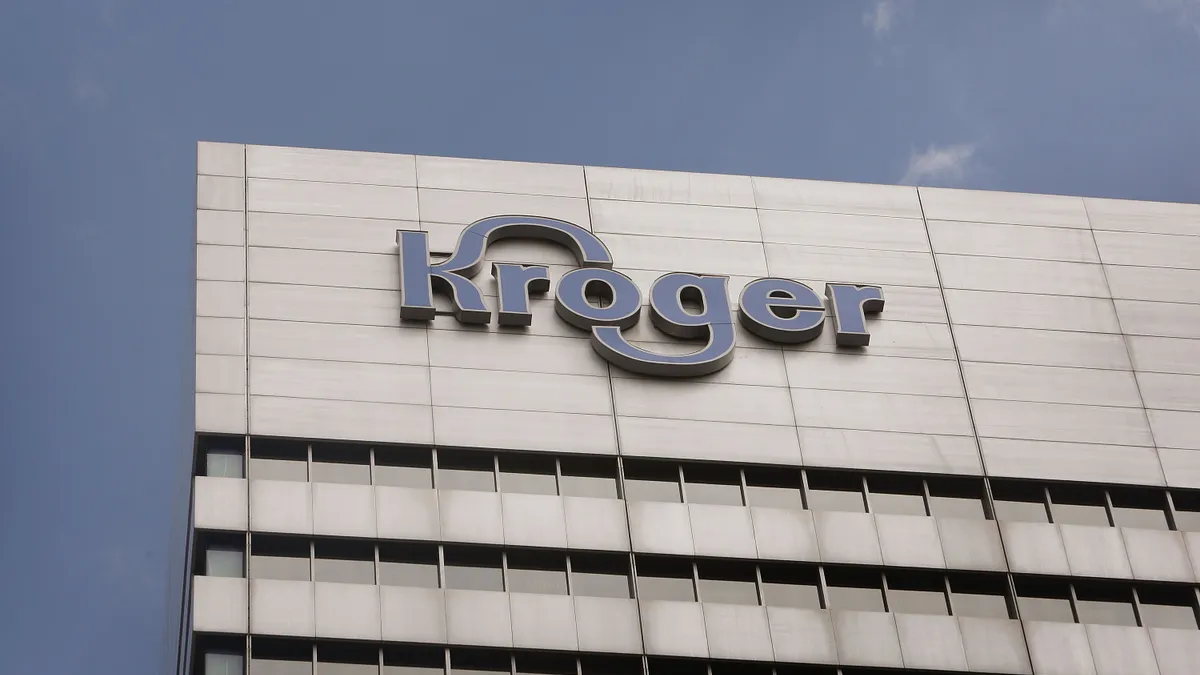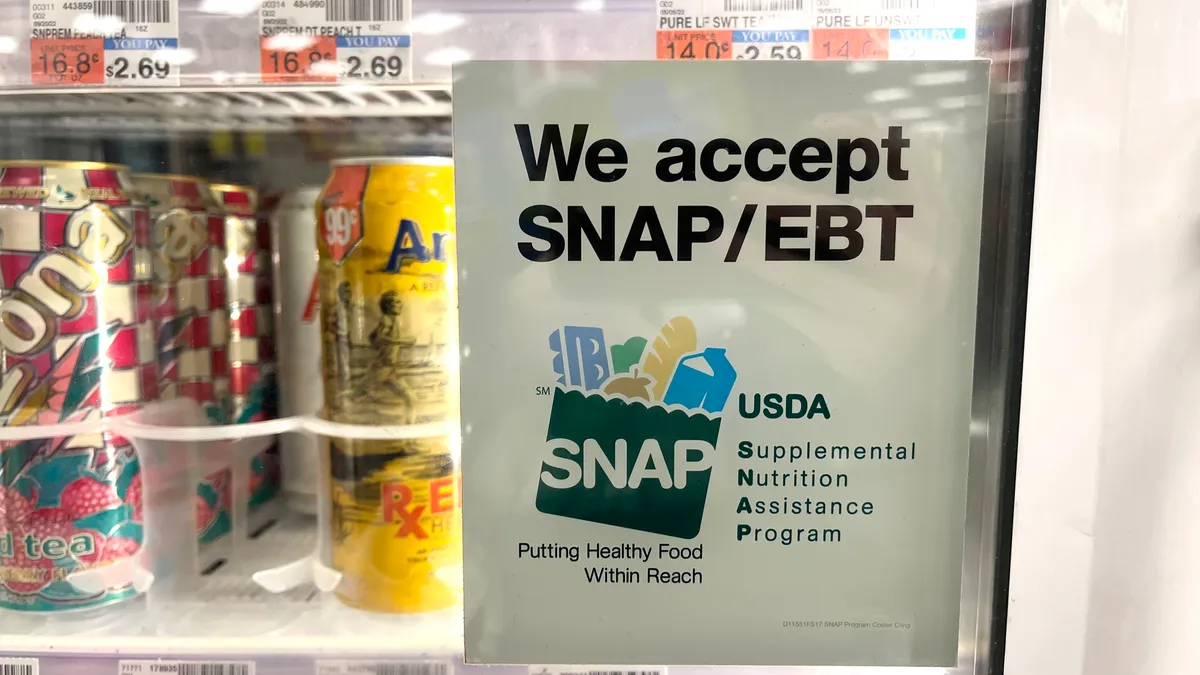Long before a pair of judges blocked Kroger’s plan to merge with Albertsons last week, Kroger took self-serving steps that effectively put the deal between the supermarket companies on a path to failure, Albertsons alleged in a lawsuit unsealed Monday.
Kroger’s actions included spurning entreaties from Albertsons to develop a more robust divestiture plan as well as deliberately proposing to sell its worst-performing stores, according to the complaint, filed on Dec. 14 in the Delaware Court of Chancery.
These actions have left Albertsons in a weakened condition as it looks to chart a new course on its own, the lawsuit claims.
“Kroger acted consistent with what it perceived to be in its financial interest, spending months delaying responses to regulators and then providing half-baked proposals that were objectively destined to fail,” the suit said.
In addition, “Kroger’s conduct created frustration and distrust among regulators, who repeatedly informed Kroger that it had failed to address their concerns, and ultimately caused an unprecedented litigation onslaught where the Parties were sued contemporaneously in three separate jurisdictions,” the complaint said, referring to the lawsuits against the merger from the Federal Trade Commission and the states of Washington and Colorado.
Kroger has pushed back vehemently against Albertsons’ contention that it bears responsibility for the merger’s disintegration. “We went to extraordinary lengths to uphold the merger agreement throughout the entirety of the regulatory process and the facts will make that abundantly clear,” Kroger said in a Dec. 11 statement following Albertsons’ announcement that it was filing suit against its former merger partner.
Albertsons claims Kroger held the cards
A key point for Albertsons’ allegations is that Kroger helmed the merger process, from the crafting of the divestiture deal with C&S Wholesale Grocers to the failed negotiations with antitrust regulators and state officials.
Albertsons initially balked at Kroger’s proposal to take the lead on the merger’s antitrust strategy, but the grocer later relented when Kroger agreed to divest up to 650 stores to satisfy regulators’ concerns and add a $600 million termination fee, according to the complaint.
Albertsons said it had asked Kroger to raise the threshold to 725 stores, but agreed to a lower number because it concluded that “it would be readily achievable to construct a divestiture package that would fully address any antitrust concerns without needing to divest more than 650 stores.”
The suit added that Kroger President and CEO Rodney McMullen agreed to the 650-store threshold in a face-to-face meeting with Stephen A. Feinberg, chief executive of Cerberus Capital Management, Albertsons’ then-largest shareholder.
“This personal commitment from the highest level of Kroger’s management gave Albertsons the added assurance to feel comfortable selling the business to Kroger,” according to the complaint.
The complaint notes that “Kroger was contractually obligated to use its ‘best efforts’ and to take ‘any and all actions’ to make sure the Merger would close.”
… and then folded
Albertsons alleged that Kroger stalled the merger process by repeatedly disregarding input from Albertsons, C&S and regulators as well as by continuing to defend a divestiture deal about which the FTC had already expressed grave concerns.
For example, three months after the FTC said it wasn’t satisfied with Kroger’s initial proposal to divest 238 stores, Kroger presented the same plan again. “Rather than address the FTC’s concerns when next meeting with the FTC in March 2023, Kroger presented the same indefensible proposal,” the complaint said.
After that March meeting, Albertsons said it gave Kroger a list of stores to consider adding to the divestiture package.
“Kroger acknowledged that additional stores needed to be added to its divestiture package. Nonetheless, across June, July, August, and September, Kroger did not add a single store to its divestiture package,” the complaint said.
Kroger allegedly mismanaged the divestiture deal
Albertsons said the grocers were aware that their proposed combination would require a robust divestiture plan to assuage regulators’ concerns, but claims Kroger dragged its feet in crafting a satisfactory deal.
“Putting a serious divestiture offer on the table right from the start would make FTC staff reluctant to recommend that the agency block the Merger and would provide a solid platform from which to negotiate a solution. Kroger chose not to do this,” the complaint said.
Kroger’s selection of C&S, a grocery wholesaler and distributor with limited experience running retail stores, as the divestiture buyer “came with obvious risks” because C&S had sold or closed 367 grocery stores shortly after acquiring them, the complaint claimed.
Albertsons accuses Kroger of “cherry-picking” the stores in the divestiture proposals of 238 locations and then 413 stores, selecting “low-performing, unattractive stores … in a hodgepodge of localities.” Kroger CEO Rodney McMullen even shot down a suggestion by Kroger management to divest the University Village QFC store in Seattle because of the location’s significant real estate value, according to the complaint.
“Kroger chose to pursue its own economic interests by trying to hold on to as many valuable assets as it could through the Merger and divestiture … despite clear and consistent feedback from the FTC, the state Attorneys General, C&S, and Albertsons that its approach was unlikely to lead to regulatory approval,” according to the complaint.
Albertsons alleges that Kroger did not answer questions from the FTC about the economic analysis behind the divestiture deal, did not use a uniform threshold of market concentration or specific radius around the grocers’ stores to determine overlaps and did not apply a market definition that the FTC was likely to use.
The complaint noted that the federal judge highlighted how Kroger’s own economics expert said during the trial that the merger would be presumptively anticompetitive in at least 22 markets.
Albertsons says Kroger changed its mind after agreeing to merge
Albertsons claimed in the suit that after the negative reaction to the companies’ merger announcement in October 2022, Kroger concluded the deal would be worth consummating “only on terms far more advantageous to Kroger than those for which it had bargained.” That led Kroger to press ahead with a risky divestiture strategy instead of aggressively trying to assuage regulatory concerns about the merger agreement, according to the complaint.
“Kroger’s refusal to consider viable paths toward regulatory approval suggested by both Albertsons and C&S laid bare that its ultimate goal was not to uphold its agreement to take ‘any and all actions’ necessary for regulatory approval, but rather to maximize the profitability of any proposed divestiture package, even at the risk of jeopardizing regulatory approval and, thus, the Merger,” the suit said.
Albertsons also said in the complaint that McMullen undermined the merger by publicly stating that his company did not need a merger to succeed. McMullen’s comments, which he made during Kroger’s third-quarter earnings call on Dec. 5, “signaled that Kroger was not serious about its representations” during the courtroom proceeding where the grocers defended their plan to merge, according to the lawsuit.
McMullen’s comments to investors also “aligned with Kroger’s ulterior motive to weaken Albertsons as a future competitor by implying to the market that Albertsons’ value to Kroger had diminished,” Albertsons alleged.
“Kroger derailed the merger after suffering a classic case of buyer’s remorse,” the lawsuit claims.
Albertsons says the deal’s failure has dealt it major setbacks
Albertsons added in the suit that the more than two years it invested in the merger hampered its ability to evolve in a rapidly changing grocery industry.
Albertsons also said that it is now at a “competitive disadvantage vis-à-vis one of its largest competitors” because Koger was able to closely examine nearly every facet of its business while “Albertsons was stuck in a standstill” while the merger process played out.
“The failure of the Merger leaves Albertsons facing the very dilemma the Merger was intended to solve: how to better compete with grocery titans like Walmart, Costco, Amazon, and Target,” Albertsons said. “Without the Merger, Albertsons will be forced to recalibrate its strategy to attempt to achieve the kinds of benefits the Merger would have afforded.”




